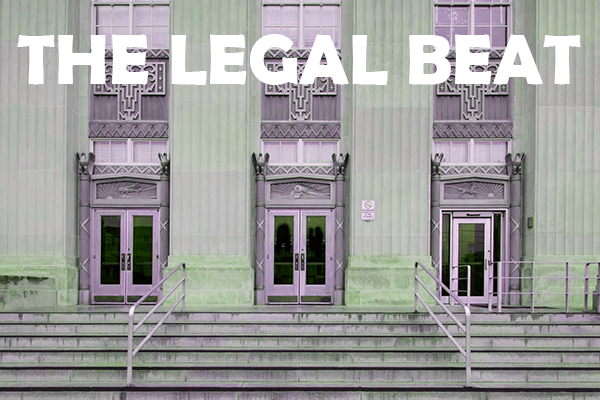|
RCBJ-Audible (Listen For Free)
|
Piermont Developer LLC Argues Local Law Was Valid; Supreme Court Judge Misapplied The Law Declaring CBM Zone Illegal
It’s not over.
Rockland County Supreme Court Justice Hal Greenwald last October declared Piermont’s adoption of a local law creating a multi-use Central Business District (CBM) zone invalid, effectively stopping the Village of Piermont from processing Piermont Developers LLC’s application to construct a multi-family housing project at 447-477 Piermont Avenue.
The developers had planned to construct a 14-unit multi-family building on a vacant lot on Piermont’s main commercial street, though it had not received any approvals for its design or site plan, when residents filed a lawsuit in Rockland County Supreme Court, alleging the local law establishing the CBM was invalid because the village had not complied with a requirement in the General Municipal Law (GML) for the County Planning Department to review the plan.
Villagers took their cue from the Rockland County Planning Department, which issued a letter saying it would not review the proposed multi-family proposal because the law establishing the CBM zone was “jurisdictionally invalid” for non-compliance with the GML, a law intended to provide for regional planning review of municipal zoning changes.
The village countered it had complied. The law only required the village to mail the proposed zoning change to the county, and it was the postmark that started the county’s 30-day clock to weigh in. The village said no response was received from the county, and after waiting 30-days, it adopted the zoning changes. The zoning change allowed multi-family housing in the Central Business District as well as a host of other measures to bring non-conforming uses and lots into compliance.
Justice Greenwald sided with the neighbors, ruling the village failed to “affect the mandatory referral” and voided the village’s CBM zone. The developer’s plans were dead in the water until the village took additional steps to pass new legislation. But the judge ruled that the village still needed to comply with the county GML review. The court urged the Village to resubmit the proposal and expedite comments from the county.
The village held public meetings explaining the CBM zone but it never passed a new version of the law.
Now, the developer has appealed the original ruling.
The developer is claiming the court improperly decided the merits of the case on an application for a preliminary injunction. It argues that preliminary relief is supposed to temporary (pending a full hearing) and the court decided the merits of the case before the developer or the Village were given a chance to answer the petition.
The developer is also arguing the challenge brought by the neighbors was beyond the four-month statutory requirement to challenge passage of a local law. The neighbors filed 418 days after the law was passed. The developer says the court should not have heard the untimely challenge.
On the merits of the case though, the developer argued the village’s obligations under the GML were limited to mailing the proposed local law to the county, and that the village had proof of mailing with a postmark, which was not challenged. The suit says the court overstepped when it ruled the village failed to comply and that the non-compliance warranted tossing the local law and the CBM zone it created.
According to the developer, “The land use process in New York state is known to be onerous. There is a mountain of red tape, regulation, and procedural hurdles. GML 239 is just one of them. Its intention is noble: it seeks to give County Planning a chance to get a word in on local land use actions. But the statute was never meant to give County Planning implicit power to hold up those actions. That is why the statute provides for a thirty-day timeframe counting from postmarking for the county to issue comments, if it has any.”
Having waited the thirty days from mailing the referral, according to the developer’s brief, the village met its legal obligations, and the passage of the local law should have been upheld.
The developer also contends the court did not properly consider the legal requirements before issuing its ruling. For example, the appeal claims neighbors failed to show irreparable harm or a meritorious case, as required for an injunction.
The developer is asking the appellate court to reverse Justice Greenwald’s ruling, reinstate the local law and the CBM zoning, and remand the case back to the lower court. The multi-family project is an as-of-right project under the CBM zone, so no variances would be required, only a Special Permit.
When the developer originally submitted its plans and a rendering of the proposed building to the Village Planning Board, residents turned out in opposition. Anger toward the board led to the resignation of the Planning Board Chairman Daniel Spitzer.
While the application and lawsuit were pending, Village Trustee Nate Mitchell resigned from the village board. According to the developer, Mitchell resigned after it was discovered that he was communicating with the neighbors who brought the lawsuit against the village.
Mitchell had originally voted to approve the CBM district.
According to the appeal: “The messages are concerning as they show that Trustee Mitchell (after voting to approve the rezoning that this litigation and the lower Court reversed) encouraged and influenced the litigation. He met privately with the Village attorney to discuss the litigation, and then gave information to Mr. Robert Zitt (R-622-624), whose wife was a plaintiff in the litigation. R-563-66. Apparently, this was aimed at gaining a political win over the current Mayor and Village Attorney.”
The developer argues Mitchell “encouraged and influenced” the litigation, sharing information he obtained from the Village Attorney with the wife of one of the plaintiff neighbors.
Mitchell is running for Village of Piermont Mayor in this November’s election.
The developer is represented by Lee Lefkowitz of White Plains-based Zarin & Steinmetz, LLP.



















